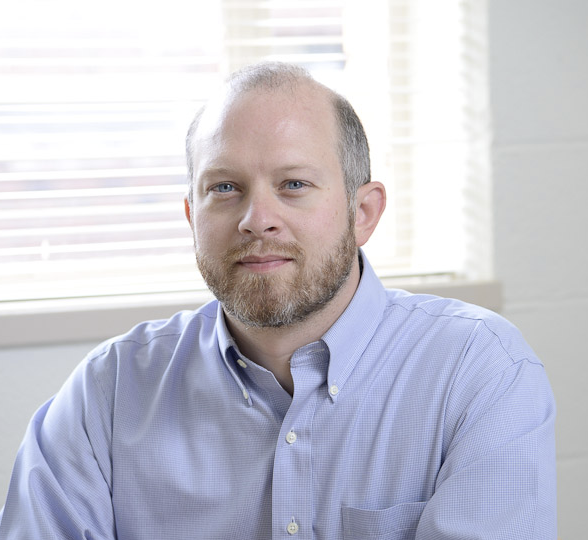
David L. Aylor, Ph.D.
Associate Professor of Biological Sciences
Thomas Hall 3570 A
Campus Box 7614
Thomas Hall 3570 A
Campus Box 7614
- 919-515-7079
- dlaylor@ncsu.edu
- http://aylorlab.wordpress.ncsu.edu
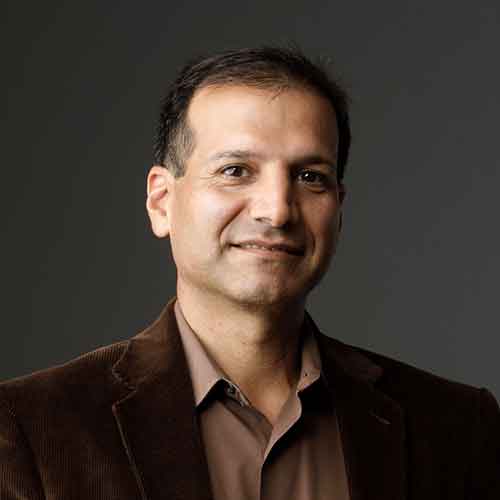
Hudson Ashrafi, Ph.D.
Associate Professor of Horticultural Science
234 Kilgore Hall
Campus Box 7609
234 Kilgore Hall
Campus Box 7609
- 919-515-1216
- hashraf2@ncsu.edu
- https://blueberry.cals.ncsu.edu/
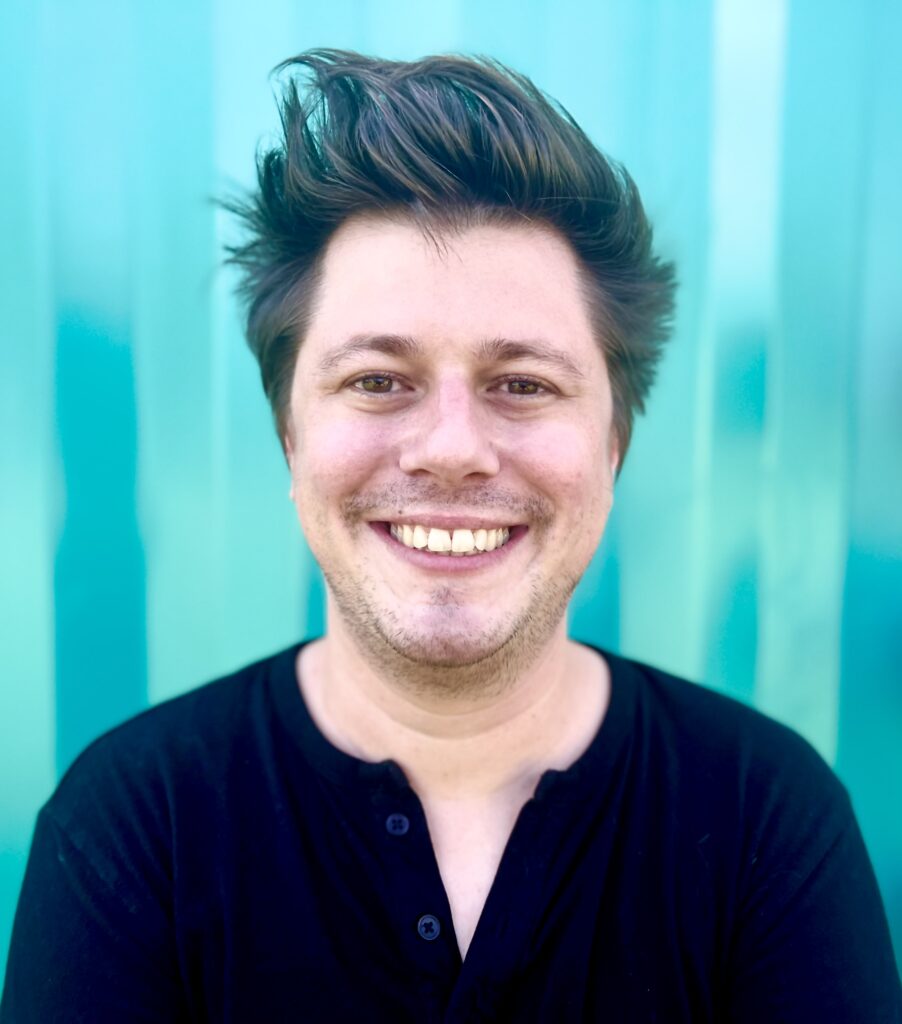
Louis-Marie Bobay
Assistant Professor
My lab focuses on the evolution of microbial genomes and populations. We apply and develop computational approaches to elucidate the forces that shape the architecture and gene repertoire of microbial genomes. We are particularly interested in understanding the impact of population dynamics on microbial evolution. We are working on the evolution of gene flow across bacterial populations and on the processes leading to microbial speciation.
344 Ricks Hall
Campus Box 7566
My lab focuses on the evolution of microbial genomes and populations. We apply and develop computational approaches to elucidate the forces that shape the architecture and gene repertoire of microbial genomes. We are particularly interested in understanding the impact of population dynamics on microbial evolution. We are working on the evolution of gene flow across bacterial populations and on the processes leading to microbial speciation.
344 Ricks Hall
Campus Box 7566
- ljbobay@ncsu.edu
- https://louismariebobay.wixsite.com/bobaylab
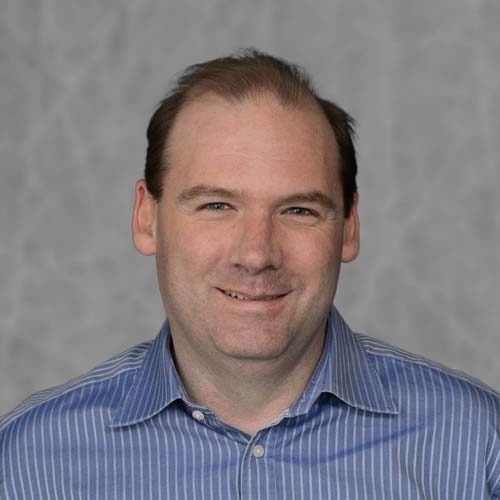
Gavin Conant, Ph.D.
Interim co-Director of the Bioinformatics Research Center
Professor of Biological Sciences
356 Ricks Hall
Campus Box 7566
Our primary research interest is in understanding the origins of novel features in evolution and ecosystems, in particular how new genetic features appear and are altered by natural selection. One of our major area of interest is in how gene and genome duplications alter cellular networks and hence phenotypes. We also used metagenomic techniques to study how microbial communities can create complex ecosystems through simple assembly rules.
Professor of Biological Sciences
356 Ricks Hall
Campus Box 7566
Our primary research interest is in understanding the origins of novel features in evolution and ecosystems, in particular how new genetic features appear and are altered by natural selection. One of our major area of interest is in how gene and genome duplications alter cellular networks and hence phenotypes. We also used metagenomic techniques to study how microbial communities can create complex ecosystems through simple assembly rules.
- 919-515-8164
- gconant@ncsu.edu
- http://conantlab.org/
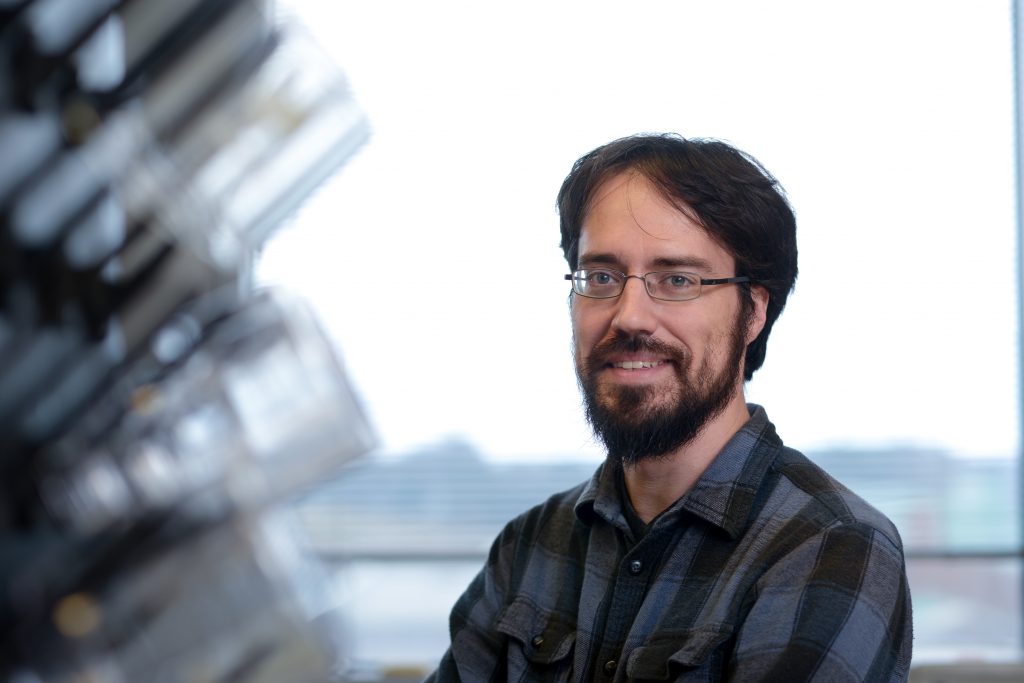
Benjamin Callahan, Ph.D.
Associate Professor of Population, Health, & Pathobiology
CVM Research Building 456
Campus Box 8401
Dr. Callahan studies microbiomes - the complex microbial communities which inhabit and interact with almost every part of the world around us. He has developed new bioinformatic methods to more accurately characterize microbial communities, and applied them to the study of the microbial contribution to the pathophysiology of preterm birth. He is also interested in adaptation within microbial populations, which he has studied with a mix of analytics, simulation and experimental evolution.
CVM Research Building 456
Campus Box 8401
Dr. Callahan studies microbiomes - the complex microbial communities which inhabit and interact with almost every part of the world around us. He has developed new bioinformatic methods to more accurately characterize microbial communities, and applied them to the study of the microbial contribution to the pathophysiology of preterm birth. He is also interested in adaptation within microbial populations, which he has studied with a mix of analytics, simulation and experimental evolution.
- 919-515-8536
- bcallah@ncsu.edu
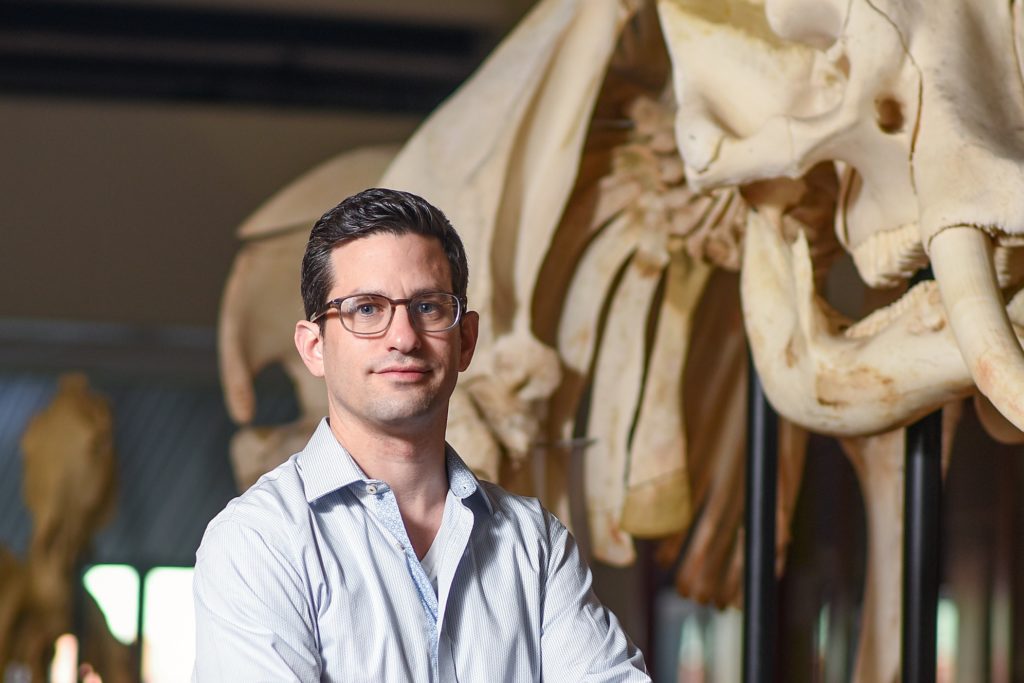
Alon Greenbaum, Ph.D.
Assistant Professor of Biomedical Engineering
Affiliate Graduate Faculty (Bioinformatics)
Engineering Building III (EB3) 1203
021 Biomedical Partnership Center
Campus Box 7115
Affiliate Graduate Faculty (Bioinformatics)
Engineering Building III (EB3) 1203
021 Biomedical Partnership Center
Campus Box 7115
- 919-515-5997
- greenbaum@ncsu.edu
- https://www.greenbaum-lab.org

Steffen Heber, Ph.D.
Professor of Computer Science-Engineering
347 Ricks Hall
Engineering Building II (EB2) 2260
Campus Box 7566
347 Ricks Hall
Engineering Building II (EB2) 2260
Campus Box 7566
- 919-513-2726
- sheber@ncsu.edu
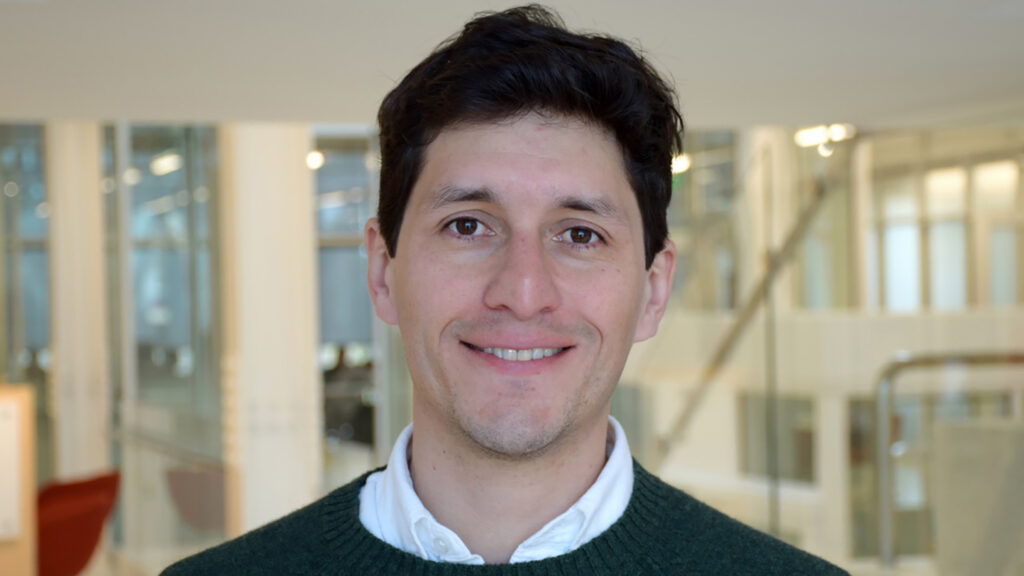
Rafael Guerrero, Ph.D.
Assistant Professor of Biological Sciences
Thomas Hall 3528B
Campus Box 7566
Thomas Hall 3528B
Campus Box 7566
- 919 515-5329
- rfguerre@ncsu.edu
- http://rguerrer.org

Albert Keung, Ph.D.
Associate Professor
Engineering Building I (EB1) 2088F
The sequencing of the human genome in 2001 was a milestone for science. However, the origins of most diseases and developmental processes remain obscure. It is now clear that beyond the genetic code there is a wealth of information stored in the dynamic organization of nuclear structures. This “epi-genetic” information controls how genes are accessed and expressed and is often misregulated in disease; yet, so far there have been few ways to synthetically read, write, and engineer it.
Drawing upon interdisciplinary approaches in engineering, biology, and physics our lab develops molecular technologies to expand and unlock new ways to control, understand, and harness chromatin. These technologies will enable researchers and engineers to manipulate features of chromatin, such as it’s biochemistry and 3-dimensional structure, in highly defined and specific ways. These technologies can be used to reveal the mechanisms of developmental transitions and diseases. In addition, they can be exploited to create synthetic “biological circuits” useful in applications such as antibody production and cancer-killing cells. Epigenetic control is a fundamental and ubiquitous aspect of cell biology; the ability to control its properties will unlock discovery and therapeutic opportunities in many areas of biology, medicine, and biotechnology.
Focus Areas – Synthetic Biology, Neural and Stem Cell Engineering, Bioengineering
Engineering Building I (EB1) 2088F
The sequencing of the human genome in 2001 was a milestone for science. However, the origins of most diseases and developmental processes remain obscure. It is now clear that beyond the genetic code there is a wealth of information stored in the dynamic organization of nuclear structures. This “epi-genetic” information controls how genes are accessed and expressed and is often misregulated in disease; yet, so far there have been few ways to synthetically read, write, and engineer it.
Drawing upon interdisciplinary approaches in engineering, biology, and physics our lab develops molecular technologies to expand and unlock new ways to control, understand, and harness chromatin. These technologies will enable researchers and engineers to manipulate features of chromatin, such as it’s biochemistry and 3-dimensional structure, in highly defined and specific ways. These technologies can be used to reveal the mechanisms of developmental transitions and diseases. In addition, they can be exploited to create synthetic “biological circuits” useful in applications such as antibody production and cancer-killing cells. Epigenetic control is a fundamental and ubiquitous aspect of cell biology; the ability to control its properties will unlock discovery and therapeutic opportunities in many areas of biology, medicine, and biotechnology.
Focus Areas – Synthetic Biology, Neural and Stem Cell Engineering, Bioengineering
- 919-515-8992
- ajkeung@ncsu.edu
- https://keunglab.wordpress.ncsu.edu/
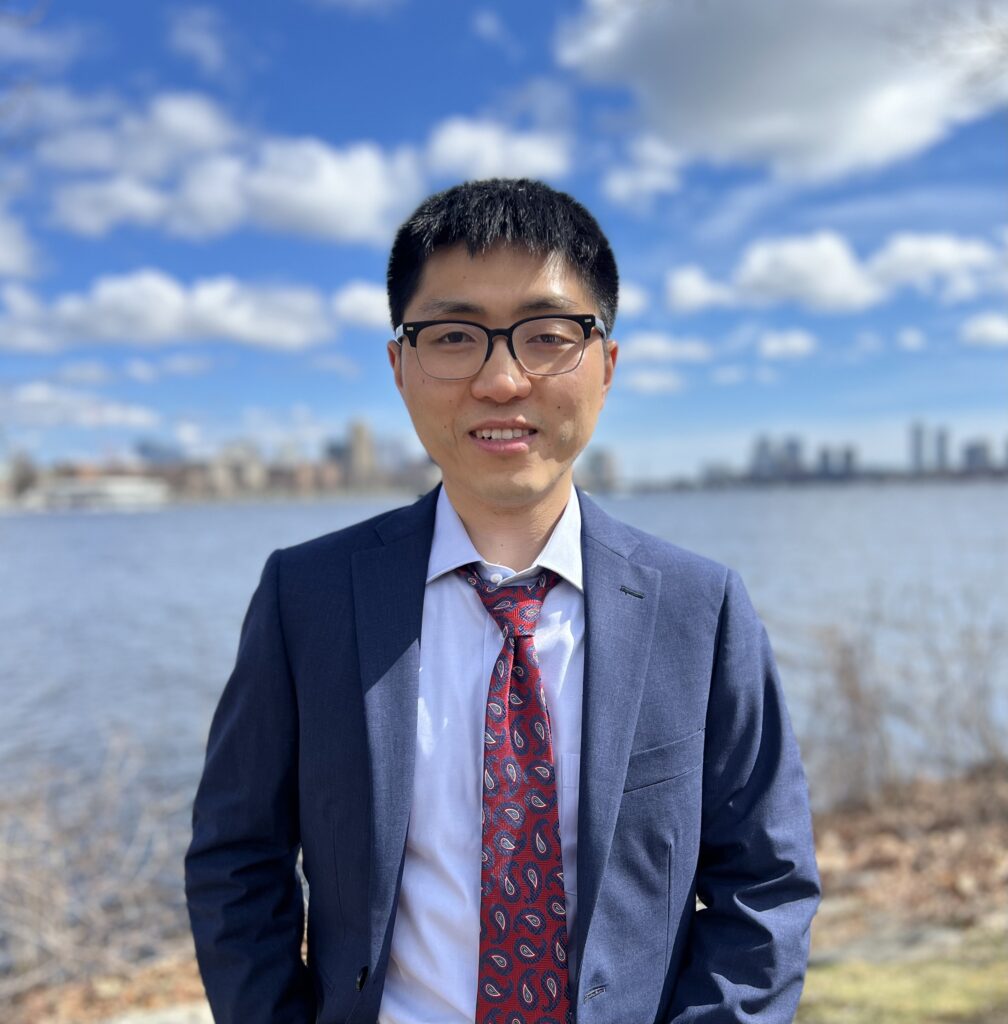
Xingcheng Lin
Assistant Professor
Our research group will integrate computational simulations and data-driven methods to investigate the fundamental mechanisms of epigenetic regulation – the “dark matter” of the human genome. By leveraging the vast amount of structural and sequence data available in bioinformatics and integrating principles of physics and chemistry, our team is dedicated to developing innovative models to explore the dynamics and functions of biomolecules critical to the organization and functions of genome and epigenome. Our research will help identify potential treatments for diseases caused by epigenetic dysregulation. Additionally, we are broadly interested in other biomolecular systems with significant applications in biomedical research and therapeutics.
347 Ricks Hall
Campus Box 7566
Our research group will integrate computational simulations and data-driven methods to investigate the fundamental mechanisms of epigenetic regulation – the “dark matter” of the human genome. By leveraging the vast amount of structural and sequence data available in bioinformatics and integrating principles of physics and chemistry, our team is dedicated to developing innovative models to explore the dynamics and functions of biomolecules critical to the organization and functions of genome and epigenome. Our research will help identify potential treatments for diseases caused by epigenetic dysregulation. Additionally, we are broadly interested in other biomolecular systems with significant applications in biomedical research and therapeutics.
347 Ricks Hall
Campus Box 7566
- Xingcheng_Lin@ncsu.edu
- https://lingroup.wordpress.ncsu.edu/
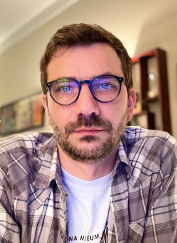
Marcelo Mollinari, Ph.D.
Associate Research Professor
Dr. Mollinari's primary research interests lie in genetic statistics and its applications in understanding complex biological processes of species with more than two paired sets of chromosomes, known as polyploid species. His work centers around developing and applying statistical and computational strategies to decode the complexity of inheritance patterns in these species, focusing on plant breeding.
322 Ricks Hall
Campus Box 7566
Dr. Mollinari's primary research interests lie in genetic statistics and its applications in understanding complex biological processes of species with more than two paired sets of chromosomes, known as polyploid species. His work centers around developing and applying statistical and computational strategies to decode the complexity of inheritance patterns in these species, focusing on plant breeding.
322 Ricks Hall
Campus Box 7566
- 919-513-3439
- mmollin@ncsu.edu
- go.ncsu.edu/polyploid
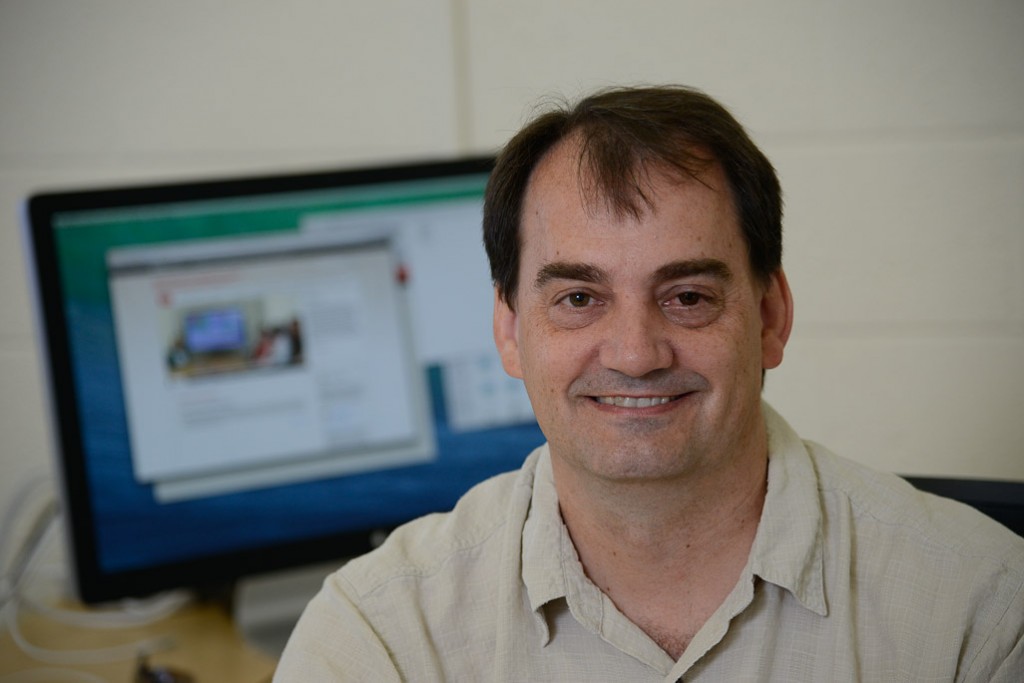
Spencer V. Muse, Ph.D.
Professor of Statistics
Director of Bioinformatics Graduate Program
Director of Statistics Undergraduate Program
303 Ricks Hall
5276 SAS Hall
Campus Box 7566
Director of Bioinformatics Graduate Program
Director of Statistics Undergraduate Program
303 Ricks Hall
5276 SAS Hall
Campus Box 7566
- 919-515-1948
- muse@ncsu.edu
- http://www4.ncsu.edu/~muse/
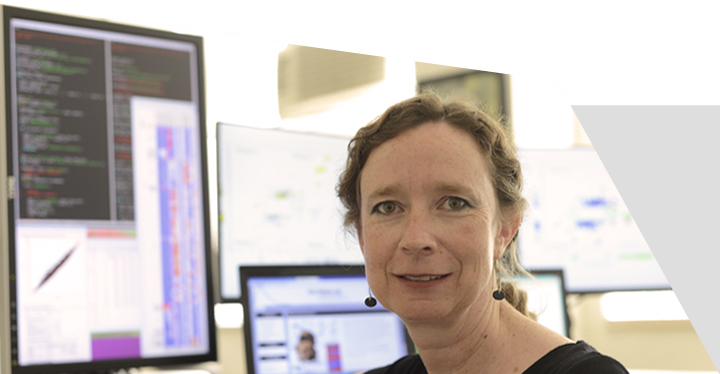
Dahlia Nielsen, Ph.D.
Associate Professor of Biological Sciences
358 Ricks Hall
Campus Box 7566
358 Ricks Hall
Campus Box 7566
- 919-515-2586
- dahlia@statgen.ncsu.edu
- http://statgen.ncsu.edu/dahlia/
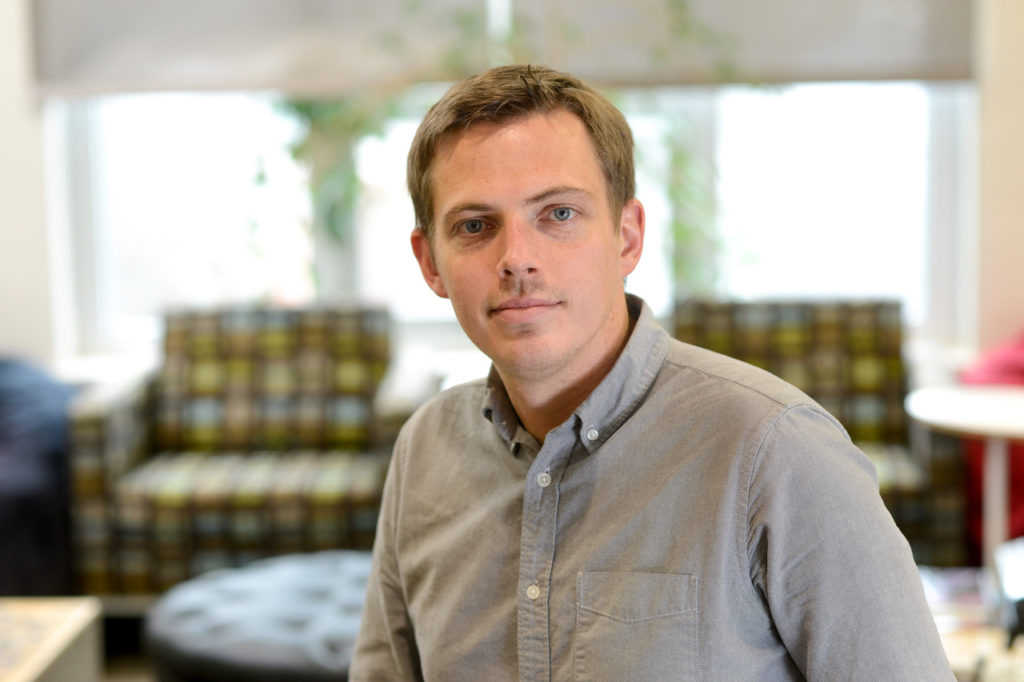
David Rasmussen, Ph.D.
Associate Professor of Entomology & Plant Pathology
312 Ricks Hall & Partners II, Room 1418
Campus Box 7566
Dr. Rasmussen is an infectious disease biologist and developer of phylogenetic methods for tracking the spread of pathogens using genomic sequence data. His research focuses on several human pathogens including dengue, influenza and HIV, as well as agricultural pathogens of plants and animals. Future work in his group will couple experimental viral evolution studies with phylogenetic analyses to better understand the genetic basis of pathogen emergence and adaption to new hosts.
312 Ricks Hall & Partners II, Room 1418
Campus Box 7566
Dr. Rasmussen is an infectious disease biologist and developer of phylogenetic methods for tracking the spread of pathogens using genomic sequence data. His research focuses on several human pathogens including dengue, influenza and HIV, as well as agricultural pathogens of plants and animals. Future work in his group will couple experimental viral evolution studies with phylogenetic analyses to better understand the genetic basis of pathogen emergence and adaption to new hosts.
- drasmus@ncsu.edu
- https://phylodynamics.wordpress.ncsu.edu/
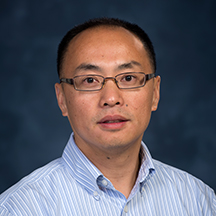
Xinxia Peng, Ph.D.
Associate Professor of Molecular Biomedical Sciences
312 Ricks Hall
CVM Research Building 492
Campus Box 7566
The Peng Lab uses systems approaches to better understand pathogen-host-microbiome interactions and microbial pathogenesis. The goal is to uncover underlying molecular mechanisms of microbial pathogenesis and to identify targets of intervention as well as biomarkers for clinical applications. We focus on computational analysis of high-throughput omics data combined with experimental validation. The Lab is housed in the College of Veterinary Medicine (CVM) Research Building located at the NC State Biomedical Centennial Campus, and is part of NC State Bioinformatics Research Center.
312 Ricks Hall
CVM Research Building 492
Campus Box 7566
The Peng Lab uses systems approaches to better understand pathogen-host-microbiome interactions and microbial pathogenesis. The goal is to uncover underlying molecular mechanisms of microbial pathogenesis and to identify targets of intervention as well as biomarkers for clinical applications. We focus on computational analysis of high-throughput omics data combined with experimental validation. The Lab is housed in the College of Veterinary Medicine (CVM) Research Building located at the NC State Biomedical Centennial Campus, and is part of NC State Bioinformatics Research Center.
- 919-515-4481
- xpeng5@ncsu.edu
- https://cvm.ncsu.edu/directory/peng-xinxia/
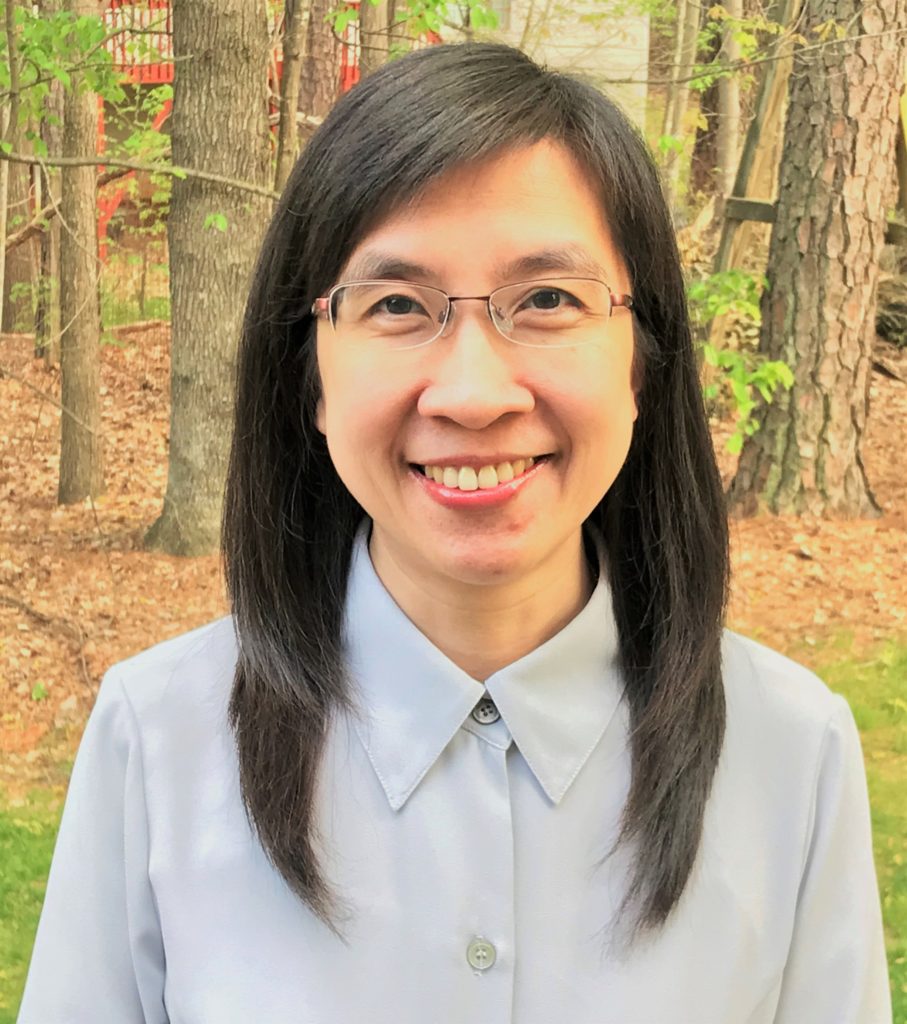
Jung-Ying Tzeng, Ph.D.
Professor of Statistics
305 Ricks Hall
Campus Box 7566
Dr. Jung-Ying Tzeng teachs Genetic Data Analysis, a special topics course for bioinformatics and statistical genetics students that covers the basics of genetic data analysis and gene mapping. Her research focus is development of statistical methods that can facilitate genetic epidemiologic research on human complex diseases; statistical modeling of multimarker/haplotype association for genome-wide and candidate-gene studies; gene-based and pathway-based analysis for pharmacogenetics; SNP genotyping error and quality control; and sequence-based association studies.
305 Ricks Hall
Campus Box 7566
Dr. Jung-Ying Tzeng teachs Genetic Data Analysis, a special topics course for bioinformatics and statistical genetics students that covers the basics of genetic data analysis and gene mapping. Her research focus is development of statistical methods that can facilitate genetic epidemiologic research on human complex diseases; statistical modeling of multimarker/haplotype association for genome-wide and candidate-gene studies; gene-based and pathway-based analysis for pharmacogenetics; SNP genotyping error and quality control; and sequence-based association studies.
- 919-513-2723
- jytzeng@ncsu.edu
- http://www4.stat.ncsu.edu/~tzeng/

Fred Wright, Ph.D.
Interim co-Director of the Bioinformatics Research Center
Goodnight Innovation Distinguished Professor of Statistics and Biological Sciences
306 Ricks Hall
Campus Box 7566
Goodnight Innovation Distinguished Professor of Statistics and Biological Sciences
306 Ricks Hall
Campus Box 7566
- 919-515-9060
- fred_wright@ncsu.edu

Cranos Williams, Ph.D.
Goodnight Distinguished Professor of Agricultural Analytics
Platform Director, NC Plant Sciences Initiative
Plant Sciences Building (PSB) Rm 3320
Campus Box 7911
Dr. Cranos Williams, PhD. is currently a professor in the Electrical and Computer engineering department at North Carolina State University, the Platform Director of the Data-Driven Plant Sciences research platform of the North Carolina Plant Sciences Initiative (https://cals.ncsu.edu/psi/), and is the head of the EnBiSys Research Laboratory (https://research.ece.ncsu.edu/enbisys/). His research lab develops methodologies familiar to other areas of electrical and computer engineering (e.g. computational intelligence, system identification, nonlinear systems analysis and control, and signal processing) to model and predict the impact that genetic and environmental perturbations have on overall plant response (e.g. biomass, cellulose content, and plant cell wall strength).
Platform Director, NC Plant Sciences Initiative
Plant Sciences Building (PSB) Rm 3320
Campus Box 7911
Dr. Cranos Williams, PhD. is currently a professor in the Electrical and Computer engineering department at North Carolina State University, the Platform Director of the Data-Driven Plant Sciences research platform of the North Carolina Plant Sciences Initiative (https://cals.ncsu.edu/psi/), and is the head of the EnBiSys Research Laboratory (https://research.ece.ncsu.edu/enbisys/). His research lab develops methodologies familiar to other areas of electrical and computer engineering (e.g. computational intelligence, system identification, nonlinear systems analysis and control, and signal processing) to model and predict the impact that genetic and environmental perturbations have on overall plant response (e.g. biomass, cellulose content, and plant cell wall strength).
- 919-513-1923
- cmwilli5@ncsu.edu
- https://research.ece.ncsu.edu/enbisys/

Yi-Hui (Amanda) Zhou, Ph.D.
Professor of Biological Sciences
Dr. Zhou is a Chancellor's Faculty Excellence Program faculty member at North Carolina State University (NCSU). She is a Full Professor in Biological Sciences and an Adjunct Professor in Statistics. Her research focuses on computational and statistical approaches to biomedical science, with expertise in environmental health science, computational toxicology, microbiome research, cystic fibrosis, autism, disease prediction, and the impact of climate change on health.
By integrating machine learning and advanced statistical modeling, Dr. Zhou uncovers meaningful patterns in high-dimensional biomedical data, including electronic health records, next-generation sequencing, and single-cell transcriptomics. Her work bridges computational innovation with real-world health challenges, aiming to improve disease prediction, biomarker identification, and public health strategies.
Dr. Zhou is passionate about interdisciplinary collaboration and welcomes students and researchers eager to apply data science, biostatistics, and artificial intelligence to pressing biomedical and environmental health challenges.
325 Ricks Hall
Campus Box 7566
Dr. Zhou is a Chancellor's Faculty Excellence Program faculty member at North Carolina State University (NCSU). She is a Full Professor in Biological Sciences and an Adjunct Professor in Statistics. Her research focuses on computational and statistical approaches to biomedical science, with expertise in environmental health science, computational toxicology, microbiome research, cystic fibrosis, autism, disease prediction, and the impact of climate change on health.
By integrating machine learning and advanced statistical modeling, Dr. Zhou uncovers meaningful patterns in high-dimensional biomedical data, including electronic health records, next-generation sequencing, and single-cell transcriptomics. Her work bridges computational innovation with real-world health challenges, aiming to improve disease prediction, biomarker identification, and public health strategies.
Dr. Zhou is passionate about interdisciplinary collaboration and welcomes students and researchers eager to apply data science, biostatistics, and artificial intelligence to pressing biomedical and environmental health challenges.
325 Ricks Hall
Campus Box 7566
- 919-515-8966
- yihui_zhou@ncsu.edu
- https://sites.google.com/ncsu.edu/zhouslab

Zhao-Bang Zeng, Ph.D.
William Neal Reynolds Professor of Genetics and Statistics
366 Ricks Hall
Campus Box 7566
366 Ricks Hall
Campus Box 7566
- 919-515-1942
- szeng@ncsu.edu
- http://statgen.ncsu.edu/zeng/index.php
